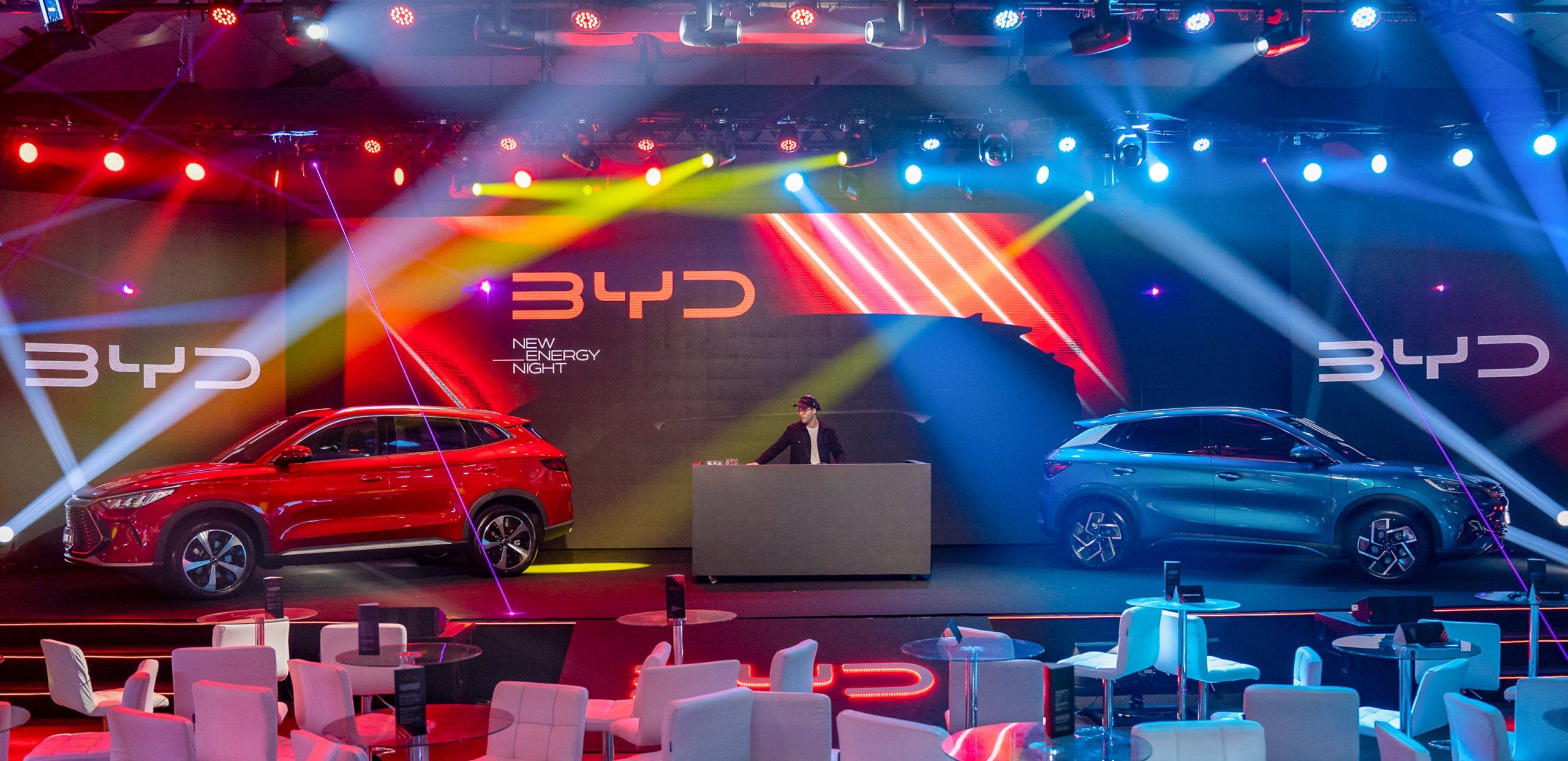Brazil's EV Market: BYD's Opportunity Amidst Ford's Shrinking Presence

Table of Contents
Ford's Retreat from the Brazilian Market
Reasons for Ford's Decline
Ford's decision to significantly reduce its operations in Brazil is a result of several interconnected factors. The company has struggled to compete effectively in a challenging market environment.
- High import taxes: Brazil's high import tariffs on vehicles and components have increased production costs, making it difficult for Ford to maintain price competitiveness.
- Rising production costs: Overall production costs in Brazil have risen, impacting profitability and making it harder for Ford to offer competitive pricing on its vehicles.
- Lack of competitive EV offerings: Ford's relatively slow adoption of electric vehicles in Brazil has left it lagging behind competitors who are capitalizing on the growing EV market demand.
- Shifting market demand: Consumer preferences are shifting towards smaller, more fuel-efficient vehicles and increasingly, EVs. Ford hasn't adequately adapted its product offerings to meet this evolving demand.
Impact on the Brazilian Automotive Landscape
Ford's reduced presence creates a noticeable void in the Brazilian automotive landscape. The consequences are far-reaching:
- Market share redistribution: Ford's shrinking market share directly translates into opportunities for other automakers to gain a larger foothold in the Brazilian market.
- Potential job losses in Ford's supply chain: The reduction of Ford's operations impacts its supply chain, potentially leading to job losses in related industries.
- Increased opportunities for competitors: This shift leaves space for both domestic and international competitors to expand their operations and market share in Brazil's automotive industry.
BYD's Strategic Positioning in Brazil
BYD's EV Strategy for Brazil
BYD, a leading global manufacturer of electric vehicles, is strategically positioned to capitalize on the opportunities presented by Ford's retreat and the growing Brazilian EV market. Their approach is multifaceted:
- Competitive pricing: BYD is known for offering competitively priced EVs, making them accessible to a broader range of Brazilian consumers.
- Localized production: BYD's commitment to localized production (where applicable) reduces import costs and strengthens its presence within the Brazilian market.
- Focus on specific EV segments: BYD is focusing on various EV segments, including passenger cars and buses, catering to diverse consumer needs within the Brazilian market.
- Targeted marketing campaigns: BYD is employing targeted marketing campaigns to increase brand awareness and consumer understanding of its electric vehicle offerings.
BYD's Competitive Advantages
Several factors contribute to BYD's competitive edge in the Brazilian EV market:
- Battery technology: BYD's advanced battery technology provides vehicles with extended range and improved performance compared to some competitors.
- Vertically integrated supply chain: BYD's vertically integrated supply chain allows for greater control over production costs and quality.
- Established global presence: BYD's substantial global presence and experience in the EV market provide a strong foundation for its expansion into Brazil.
- Diverse product portfolio: BYD offers a diverse portfolio of electric vehicles, including cars and buses, which expands its market reach within the Brazilian landscape.
Growth Potential of the Brazilian EV Market
Government Incentives and Policies
The Brazilian government is actively promoting the adoption of electric vehicles through various incentives and policies:
- Tax breaks for EV purchases: Tax breaks incentivize consumers to purchase electric vehicles.
- Subsidies for EV production: Government subsidies reduce production costs for EV manufacturers.
- Investment in charging infrastructure: Investment in charging infrastructure is crucial for increasing consumer confidence and adoption.
- Emission reduction targets: Stringent emission reduction targets are driving the shift toward electric vehicles.
Consumer Demand and Market Trends
Several factors are driving the increasing demand for EVs in Brazil:
- Rising fuel prices: Fluctuating and rising fuel prices make EVs a more economically attractive option for consumers.
- Environmental concerns: Growing environmental awareness is increasing consumer interest in eco-friendly transportation solutions.
- Increasing availability of charging stations: The growing number of charging stations is addressing range anxiety, a common concern among potential EV buyers.
- Government campaigns promoting EVs: Government campaigns educating consumers about the benefits of electric vehicles are also contributing to market growth.
Conclusion
Ford's withdrawal from the Brazilian market creates a significant opportunity for electric vehicle manufacturers like BYD. BYD's strategic approach, combined with the growing demand for EVs fueled by government incentives and evolving consumer preferences, points towards substantial growth potential. The Brazilian EV market is poised for significant expansion, and BYD is well-positioned to become a major player. Learn more about BYD's impact on the Brazil EV market and explore the exciting future of electric mobility in Brazil.

Featured Posts
-
 Could Cooper Flagg Be A Chicago Bull Nba Draft Lottery Odds
May 13, 2025
Could Cooper Flagg Be A Chicago Bull Nba Draft Lottery Odds
May 13, 2025 -
 Tasman Council Balancing Development And Realistic Road Access
May 13, 2025
Tasman Council Balancing Development And Realistic Road Access
May 13, 2025 -
 Gaza Hostages The Nightmare Continues For Families
May 13, 2025
Gaza Hostages The Nightmare Continues For Families
May 13, 2025 -
 Hybridni Nadeje Pro Byd Jak Dobyt Evropsky Trh
May 13, 2025
Hybridni Nadeje Pro Byd Jak Dobyt Evropsky Trh
May 13, 2025 -
 Sefilnt Gioynaitent O Panigyrismos Toy Mpalntok Kai I Antidrasi Ton Filathlon
May 13, 2025
Sefilnt Gioynaitent O Panigyrismos Toy Mpalntok Kai I Antidrasi Ton Filathlon
May 13, 2025
Latest Posts
-
 Pieterburen Seal Rescue Center A 50 Year Legacy Ends With Final Seal Release
May 13, 2025
Pieterburen Seal Rescue Center A 50 Year Legacy Ends With Final Seal Release
May 13, 2025 -
 Closure Of Pieterburen Seal Rescue Center 50 Years Of Service Concludes
May 13, 2025
Closure Of Pieterburen Seal Rescue Center 50 Years Of Service Concludes
May 13, 2025 -
 Last Seals Released As Pieterburen Rescue Center Ends 50 Year Mission
May 13, 2025
Last Seals Released As Pieterburen Rescue Center Ends 50 Year Mission
May 13, 2025 -
 Pieterburen Seal Center Closes Final Seals Released After 50 Years
May 13, 2025
Pieterburen Seal Center Closes Final Seals Released After 50 Years
May 13, 2025 -
 Recent Developments Partynextdoor Apologizes To Tory Lanez
May 13, 2025
Recent Developments Partynextdoor Apologizes To Tory Lanez
May 13, 2025
